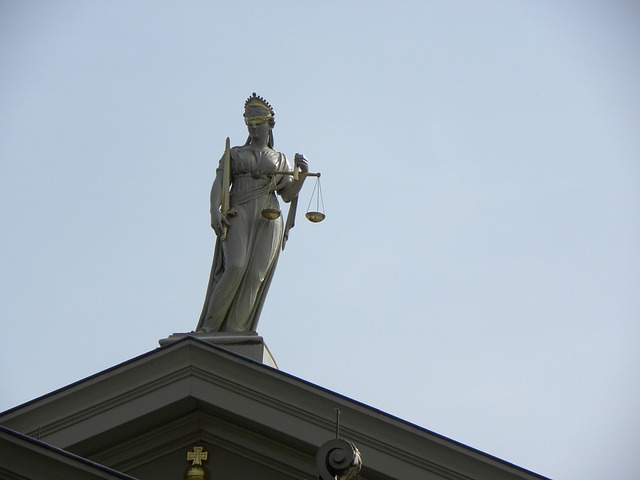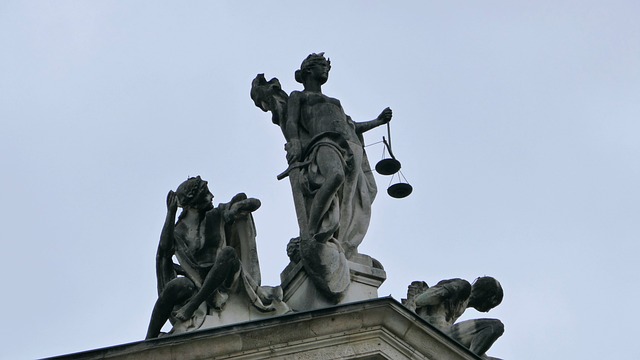Regulatory fraud laws protect consumers and society by combating deception in finance and advertising. Defamation case outcomes and settlements play a crucial role, serving as deterrents with significant financial penalties. These resolutions set precedents influencing business conduct nationwide, promoting transparency, accountability, and integrity to reinforce public trust.
Regulatory fraud laws are designed to protect consumers, investors, and the integrity of markets by holding businesses accountable for deceptive practices. This article delves into the intricacies of these laws, focusing on definitions and scope. We explore significant case outcomes in defamation, analyzing legal precedents that set important standards. Additionally, we discuss the impact of settlements on business conduct, with a special emphasis on defamation case outcomes and settlements as key drivers in shaping corporate responsibility.
- Understanding Regulatory Fraud Laws: Definitions and Scope
- Defamation Case Outcomes: A Closer Look at Legal Precedents
- Settlements and Their Impact on Business Conduct
Understanding Regulatory Fraud Laws: Definitions and Scope

Regulatory fraud laws are designed to protect the integrity of various industries by preventing deceptive practices that harm consumers, investors, and the public at large. These laws encompass a wide range of activities, from false statements in financial reporting to misleading advertising claims. Understanding these laws involves grasping their definitions and scope. Fraud is generally defined as intentional deception aimed at gaining an unfair advantage, and it can take many forms, including wire fraud, mail fraud, and securities fraud.
The scope of regulatory fraud laws extends beyond criminal penalties to include civil liabilities, such as Defamation case outcomes and settlements. For his clients, winning challenging defense verdicts in these cases is crucial, whether they involve corporate or individual clients. Effective legal strategies often require a deep understanding of industry regulations and the ability to navigate complex legal landscapes, ensuring that businesses and individuals are held accountable for their actions while also protecting their rights.
Defamation Case Outcomes: A Closer Look at Legal Precedents

In the realm of legal battles, defamation case outcomes have become significant milestones, shaping the landscape of reputational protection. These cases, often complex and highly publicized, set important precedents for how allegations of slander and libel are handled. When individuals or respective businesses find themselves on the receiving end of false accusations, understanding these legal precedents is crucial for navigating potential settlements.
Many high-profile defamation cases have resulted in substantial monetary settlements, reflecting the severity of the impact on an individual’s or company’s reputation. These outcomes serve as a warning to those engaging in white-collar and economic crimes, demonstrating that the consequences can be far-reaching. The legal system’s approach to defamation has evolved, emphasizing the importance of free speech while also safeguarding individuals from malicious falsehoods, ensuring a delicate balance in society’s discourse.
Settlements and Their Impact on Business Conduct

Settlements play a pivotal role in shaping business conduct and deterring regulatory fraud. When companies face defamation case outcomes and settlements, it sets a precedent that can resonate across the country. These resolutions often involve substantial financial penalties, along with stringent compliance requirements designed to rectify past misconduct. The impact is twofold: firstly, it serves as a stark warning to other organizations, emphasizing the severity of non-compliance; and secondly, it encourages proactive measures to enhance ethical practices and robust internal controls, fostering a culture of accountability.
An unprecedented track record of successful settlements in white collar defense cases has underscored the importance of transparency and integrity in business operations. Companies with a strong track record of adhering to regulatory standards are better positioned to navigate legal challenges, ensuring their long-term sustainability and public trust. This shift in corporate behavior is a testament to the effectiveness of these legal consequences, which go beyond monetary fines, fostering a culture where ethical conduct is not just encouraged but also demanded.
Regulatory fraud laws play a pivotal role in maintaining integrity within various industries, with defamation case outcomes and settlements acting as powerful deterrents. By examining legal precedents related to defamation, we gain insights into how these cases shape business conduct. Through successful settlements, companies are not only held accountable for fraudulent activities but also encouraged to adopt more robust compliance measures, ultimately fostering a culture of ethical practices in the corporate world.






